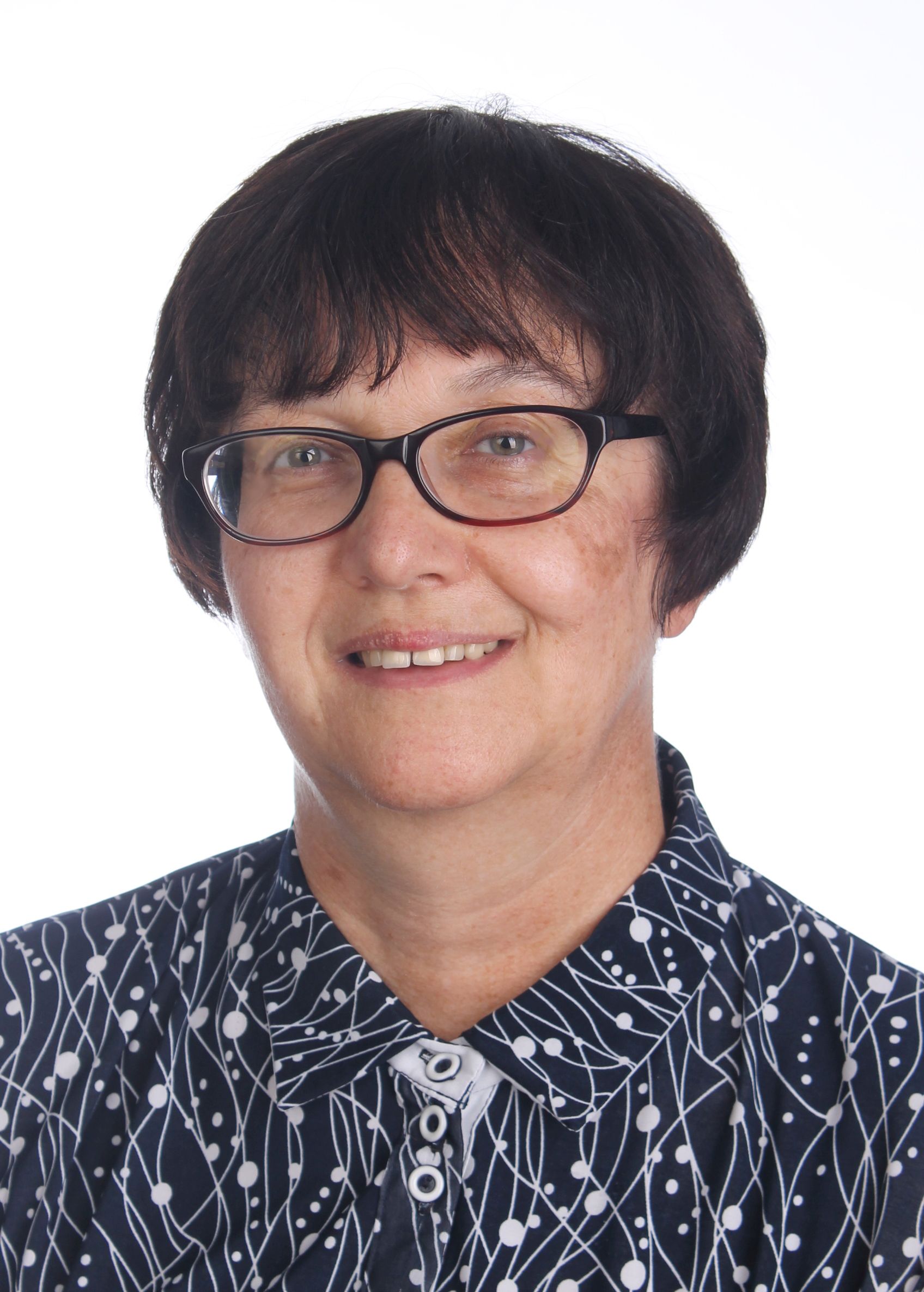Bożena Cetnarowska, prof. dr hab.
Profesor w Instytucie Językoznawstwa UŚ
bozena.cetnarowska@us.edu.pl
ORCID: 0000-0001-8642-6827
https://www.researchgate.net/profile/bozena-cetnarowska-2
https://scholar.google.pl/citations?user=7FNEYaAAAAAJ&hl=pl&oi=ao
Zainteresowania badawcze:
Bożena Cetnarowska prowadzi badania w zakresie językoznawstwa teoretycznego, porównując różne modele teoretyczne (zarówno w ujęciu językoznawstwa formalnego, jak też w ramach językoznawstwa kognitywnego, np. gramatyki konstrukcji i morfologii konstrukcyjnej). Jej zainteresowania naukowe dotyczą głównie morfologii, morfoskładni, składni frazy nominalnej, semantyki leksykalnej i frazeologii. Obejmują także niektóre zagadnienia z dziedziny przekładoznawstwa. Wybrane tematy (m.in. proces konwersji/derywacji zerowej, struktura argumentowa nominalizacji, złożenia i leksemy wielowyrazowe) badane są przede wszystkim na materiale języka angielskiego i polskiego (także w ujęciu kontrastywnym).
Najważniejsze publikacje:
- The Syntax, Semantics and Derivation of Bare Nominalisations in English. Katowice: Wydawnictwo Uniwersytetu Śląskiego, 1993
- Passive Nominals in English and Polish: an Optimality-Theoretic Analysis. Katowice: Wydawnictwo Uniwersytetu Śląskiego, 2005.
- Compound Nouns and Phrasal Nouns in English and Polish. Katowice: Wydawnictwo Uniwersytetu Śląskiego, 2019.
- Resultative adjectives in Polish. Acta Linguistica Hungarica 47 (1-4), 47-79, 2000.
- On inherent inflection feeding derivation in Polish. W: G. Booij i J. van Marle (red.), Yearbook of Morphology 1999, 153-183. Dordrecht: Kluwer, 2001.
- Group adjectives, argument structure and aspectual characteristics of derived nominals in Polish and English. W: M. Bloch-Trojnar i A. Malicka-Kleparska (red.), Aspect and Valency in Nominals, 131-156. Berlin/Boston: Walter de Gruyter, 2017.
- Phrasal names in Polish: A+N, N+A and N+N units. W: G. Booij (red.), The Construction of Words. Advances in Construction Morphology (Studies in Morphology series), 287-313. Cham: Springer, 2018.
- Multi-word expressions and compounds in Polish. W: B. Schlücker (red.), Complex Lexical Units: Compounds and Multi-Word Expressions, 279-306. Berlin: Walter de Gruyter GmbH, 2019.
- Competition between synthetic NN compounds and NN.gen phrasal nouns in Polish: Semantic niches, hapax legomena and low-level construction schemas. W: L. Körtvélyessy i P. Štekauer (red.), Complex Words. Advances in Morphology. Cambridge: Cambridge University Press, 241-259, 2020
- Variability in inflectional forms of attributive-appositive composite lexical units in Polish. Word Structure, 14(1), 59-96, 2021.
Stypendia i granty:
stypendium British Council – roczne studia magisterskie z językoznawstwa ogólnego (MA in Linguistics), University of Reading (Wlk. Brytania), rok akademicki 1986/87;
stypendium Polsko-Amerykańskiej Komisji Fulbrighta – pobyt badawczy (Visiting Scholar) w roku akademickim 1998/1999, University of Massachusetts (UMass) Amherst (USA);
grant KBN (w latach 1996-1998) na finansowanie projektu “Zaimki osobowe w grupie imiennej w języku polskim i angielskim”;
udział w roku akademickim 2001/2002 w projekcie „Wyraz fonologiczny” (Das Phonologische Wort) prowadzonym w ZAS (Zentrum für Allgemeine Sprachwissenschaft) w Berlinie.
Bożena Cetnarowska, PhD, DLitt
Professor in the Institute of Linguistics, University of Silesia
bozena.cetnarowska@us.edu.pl
ORCID: 0000-0001-8642-6827
https://www.researchgate.net/profile/bozena-cetnarowska-2
https://scholar.google.pl/citations?user=7FNEYaAAAAAJ&hl=pl&oi=ao
Research interests:
Bożena Cetnarowska conducts research in the area of theoretical linguistics and compares various theoretical models (both formal linguistic approaches as well as cognitive linguistics models, such as construction grammar and Construction Morphology). Her research interests include morphology, morphosyntax, the syntax of noun phrases, lexical semantics and phraseology. In addition, they encompass some issues from translation studies. Selected topics (e.g. the process of conversion/zero-derivation, compounds and multi-word lexemes, argument structure of derived nominals) are investigated mainly on the basis of data from Polish and English (also from the contrastive linguistic perspective).
Selected publications:
- The Syntax, Semantics and Derivation of Bare Nominalisations in English. Katowice: University of Silesia Press, 1993.
- Passive Nominals in English and Polish: an Optimality-Theoretic Analysis. Katowice: University of Silesia Press, 2005.
- Compound Nouns and Phrasal Nouns in English and Polish. Katowice: University of Silesia Press, 2019.
- Resultative adjectives in Polish. Acta Linguistica Hungarica 47 (1-4), 47-79, 2000.
- On inherent inflection feeding derivation in Polish. In: G. Booij and J. van Marle (eds.), Yearbook of Morphology 1999, 153-183. Dordrecht: Kluwer, 2001.
- Group adjectives, argument structure and aspectual characteristics of derived nominals in Polish and English. In: M. Bloch-Trojnar and A. Malicka-Kleparska (eds.), Aspect and Valency in Nominals, 131-156. Berlin/Boston: Walter de Gruyter, 2017.
- Phrasal names in Polish: A+N, N+A and N+N units. In: G. Booij (ed.), The Construction of Words. Advances in Construction Morphology (Studies in Morphology series), 287-313. Cham: Springer, 2018.
- Multi-word expressions and compounds in Polish. In: B. Schlücker (ed.), Complex Lexical Units: Compounds and Multi-Word Expressions, 279-306. Berlin: Walter de Gruyter GmbH, 2019.
- Competition between synthetic NN compounds and NN.gen phrasal nouns in Polish: Semantic niches, hapax legomena and low-level construction schemas. In: L. Körtvélyessy and P. Štekauer (eds.) Complex Words. Advances in Morphology, 241-259. Cambridge: Cambridge University Press, 2020.
- Variability in inflectional forms of attributive-appositive composite lexical units in Polish. Word Structure, 14(1), 59-96, 2021.
Scholarships and grants:
British Council scholarship – one-year studies (MA in Linguistics), University of Reading (United Kingdom) during the academic year 1986/87;
research grant from the Polish-U.S. Fulbright Commission (Senior Award) – stay as a Visiting Scholar at the University of Massachusetts (UMass) Amherst (USA), academic year 1998/99;
research grant from the State Committee for Scientific Research (KBN) to finance the project “Personal pronouns in the noun phrase in Polish and English” (1996-1998);
participation in the international research project entitled “Das Phonologische Wort/The Phonological Word” (directed by M. Żygis) in ZAS (Zentrum für Allgemeine Sprachwissenschaft) in Berlin’ (during the academic year 2000/2001).






